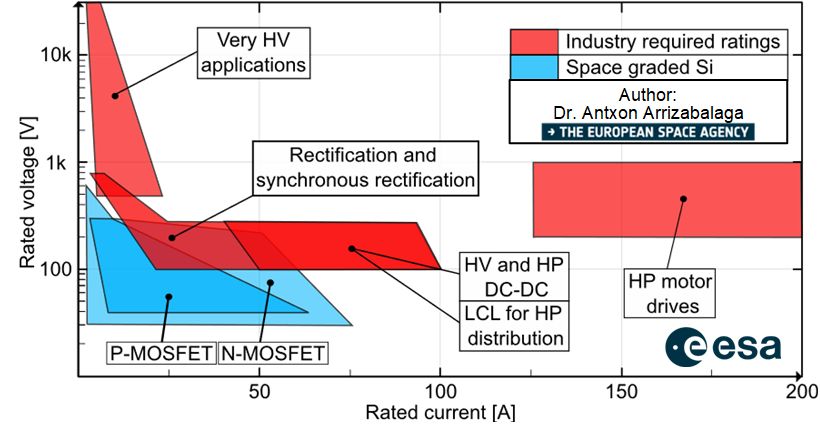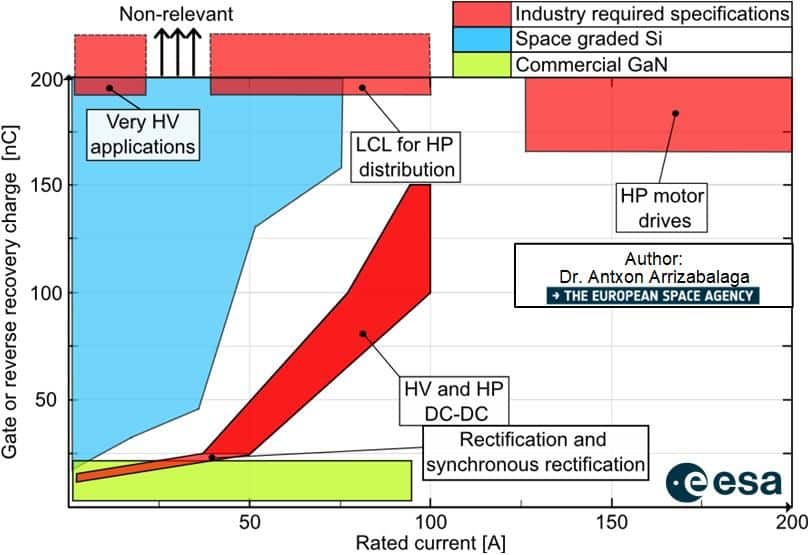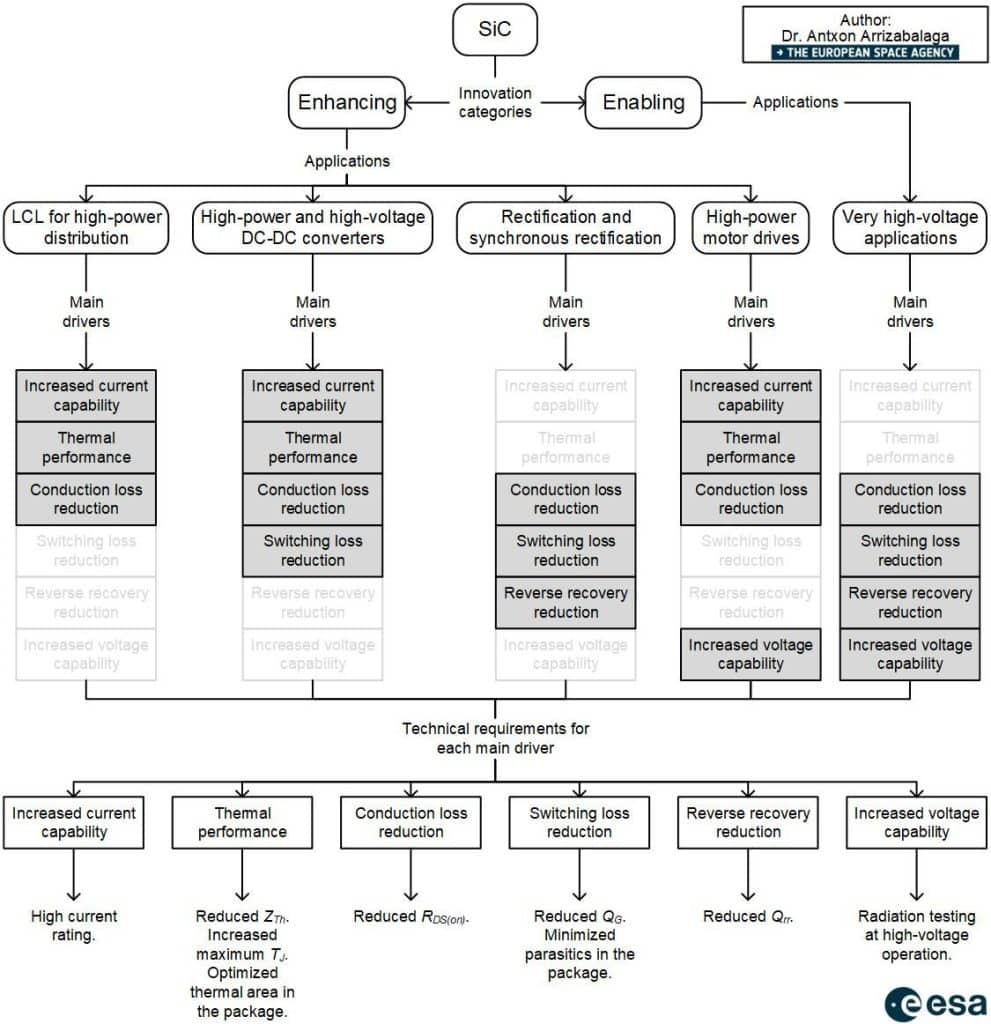-
LATEST NEWS / SiC / WBG2 Min Read
In the paper “Milliseconds Power Cycling (PCmsec) Driving Bipolar Degradation in Silicon Carbide Power Devices”, Sibasish Laha from Fraunhofer IISB and his co-authors Jürgen Leib, Andreas Schletz, Martin Maerz, Christian Liguda, Firas Faisal and Davood Momeni describe an innovative approach to silicon carbide (SiC) power cycling.
Until now, bipolar degradation (BD) tests have not been sufficiently differentiated in the investigation of failure and fault mechanisms for SiC power devices. SiC power products may experience voltage degradation which stems from the stacking faults (SFs) growth, commonly known as BD. To properly evaluate the BD impact on the electric performance of devices, it is important to distinguish it from other stress-related degradation such as power metal or interconnection.
This aspect has not yet been addressed, although the BD mechanism is well understood. The paper outlines a methodology by modifying the power cycling test (PCsec) to PCmsec in order to systematically investigate the effect of BD while controlling the impact of thermal degradation. This method enables a thorough evaluation of the distinct influences of both degradation contributors.
The complete paper will soon be available in the CIPS proceedings. Until then, feel free to download the paper presentation on event page.
There you can also find all our contributions to CIPS 2024:- Modified Approach for the Rainflow Counting Analysis of Temperature Load Signals in Power Electronics Modules – Oral presentation by S. Letz; Co-authors: D. Zhao, J. Leib, B. Eckardt, M. März
- Milliseconds Power Cycling (PCmsec) Driving Bipolar Degradation in Silicon Carbide Power Devices – Oral presentation by S. Laha; Co-authors: D. Momeni, J. Leib, A. Schletz, M. März, C. Liguda, F. Faisal
- Challenges of Junction Temperature Calibration of SiC MOSFETs for Power Cycling – a Dynamic Approach – Poster by J. Breuer, F. Dresel, A. Schletz, J. Klier, J. Leib, M. März, B. Eckardt
- Wide Bandwidth PCB Rogowski Coil Current Sensor with Droop Suppression and DC Restoration for In-Situ Inverter Measurements – Poster by S. Quergfelder, J. Sax, T. Heckel, B. Eckardt, M. März
Original – Fraunhofer IISB
-
LATEST NEWS / SiC / WBG2 Min Read
STMicroelectronics announced a collaboration with Compuware Technology Inc, (Compuware), a leading provider of high-efficiency power supplies, on a reference design for server power using ST’s industry-leading silicon carbide (SiC), galvanic isolation, and microcontroller technologies. This reference design provides unparalleled power-supply options for digital power converter applications including server, datacenter and telecom power.
As demand for digital services continues to grow, fueled by Artificial Intelligence (AI), 5G, and the Internet of Things (IoT), keeping power usage under control is an important piece of the sustainability puzzle for data centers. The STDES-3KWTLCP reference design is perfect for a 3kW and higher wattage CRPS (Common Redundancy Power Supply) server power supply. This technical advancement comes with superior efficiency, faster switching, reduced energy losses, and better thermal management capabilities. In addition, this total system solution shortens time-to-market.
Compuware stands as a global power supply leader, holding the world record for the highest number of 80 PLUS Titanium certifications, ensuring unparalleled power efficiency. Engineered for excellence, Compuware power solutions are the ideal choice for HPC, AI, Deep Learning, Cloud, and advanced applications. With high power density, it optimizes space usage without compromising reliability and efficiency, setting a new performance standard in demanding computing environments.
“Combining ST’s latest SiC MOSFET, galvanic isolation, and microcontroller technologies with Compuware’s leading-edge power energy expertise is helping Compuware unleash our design creativity to develop high-density and -efficiency solutions. Now we can achieve 89W/in.3 power density, a small size, and high power output, this reference design is a great choice for power-hungry, high-performance computing applications,” according to Robin Cheng, Vice President at Compuware.
“With a focus on the Industrial market, ST’s Power & Energy Competence Center provides low-power, mid-power, and high-power solutions with the most advanced ST technologies to our customers, and this reference design- STDES-3KWTLCP can help our customers increase energy efficiency and reduce time-to-market using ST’s efficient and reliable power solutions,” said Eric Chou, Head of Power & Energy Competence Center at STMicroelectronics.
Original – STMicroelectronics
-
LATEST NEWS / SiC / WBG
Axcelis Technologies to Deliver Purion M™ SiC Implanters to Several Power Device Chipmakers in China
2 Min ReadAxcelis Technologies, Inc. announced multiple shipments of the Company’s Purion M™ SiC medium current implanter to several leading power device chipmakers located in China. The systems, which shipped in the first quarter, will be used for 150mm production of silicon carbide power devices supporting automotive, industrial, energy, and other power intensive applications.
President and CEO, Russell Low commented, “We look forward to supporting our customers as they expand their manufacturing capabilities in this growing silicon carbide power device segment. To meet market demand, chipmakers need to maximize their yield and add capacity, while meeting a range of technical challenges unique to power devices. The Purion M SiC Power Series platform’s common and flexible architecture, coupled with its uniquely differentiated high temperature capability, makes it ideally suited for this expanding application.”
Executive Vice President of Marketing and Applications, Greg Redinbo added “The Purion M SiC tool provides customers an implanter with a broad dose and energy range perfect for the early phases of a fab production ramp. The Purion M SiC sets the stage for the future introduction of the Purion H200™ SiC and Purion XE™ SiC. Use of the full Purion Power Series family enables higher fab productivity, lower cost of ownership and the ability to manufacture more advanced silicon carbide power devices.”
Original – Axcelis Technologies
-
GaN / LATEST NEWS / PRODUCT & TECHNOLOGY / WBG2 Min Read
EPC announces the availability of the EPC9193, a 3-phase BLDC motor drive inverter using the EPC2619 eGaN® FET. The EPC9193 operates with a wide input DC voltage ranging from 14 V and 65 V and has two configurations – a standard unit and a high current version:
- The EPC9193 standard reference design uses a single FET for each switch position and can deliver up to 30 ARMS maximum output current.
- A high current configuration version of the reference design, the EPC9193HC, uses two paralleled FETs per switch position with the ability to deliver up to 60 Apk (42 ARMS) maximum output current.
Both versions of the EPC9193 contain all the necessary critical function circuits to support a complete motor drive inverter including gate drivers, regulated auxiliary power rails for housekeeping supplies, voltage, and temperature sense, accurate current sense, and protection functions. The EPC9193 boards measure just 130 mm x 100 mm (including connector).
Major benefits of a GaN-based motor drive are exhibited with these reference design boards, including lower distortion for lower acoustic noise, lower current ripple for reduced magnetic loss, and lower torque ripple for improved precision. The extremely small size of this inverter allows integration into the motor housing resulting in the lowest EMI, highest density, and lowest weight.
EPC provides full demonstration kits, which include interface boards that connect the inverter board to the controller board development tool for fast prototyping that reduce design cycle times.
“GaN-based inverters enhance motor efficiency and lower costs, expensive silicon MOSFET inverters”, said Alex Lidow, CEO of EPC. “This results in smaller, lighter, quieter motors with increased torque, range, and precision.”
Original – Efficient Power Conversion
-
GaN / LATEST NEWS / PRODUCT & TECHNOLOGY / WBG3 Min Read
Teledyne e2v HiRel announced the availability of radiation tolerant RF and Power products for the evolving New Space market. Qualified based on the EEE-INST-002 space grade standard, these plastic packaged products are qualified for the harsh environment of space with –55°C to +125°C temperature operating ratings, and are radiation tolerant for use in LEO, MEO, and GEO missions.
The RF products include several low noise amplifiers (LNA) and are ideal for demanding high-reliability space applications where low noise figure, minimal power consumption, and small footprint are critical to mission success. They are ideally suited for satellite communication systems that are increasing the power of radio signals so utilizing components with minimal noise and distortion help minimizing the degradation of digital signals.
These LNAs are developed in the radiation tolerant pHEMT technology semiconductor process technology. The monolithic microwave integrated circuit (MMIC) products are available in dual-flat no lead (DFN) plastic over molded SMT packages and are biased over single positive VDD supply voltages, eliminating the need for negative power rail voltages.
- The TDLNA002093SEP delivers a low noise figure of less than 0.37 dB, IDDQ from 30 mA to 100mA, and exceptional performance from 1 GHz (L-band) to 6 GHz (S-band) frequencies.
- The TDLNA0430SEP delivers an industry leading low noise figure of less than 0.35 dB, IDDQ of 60mA and exceptional performance from 0.3 GHz (UHF) to 3 GHz (S-band) frequencies.
- The TDLNA2050SEP delivers an industry leading low noise figure of less than 0.4 dB, IDDQ of 60mA and exceptional performance from 2.0 GHz (S-band) to 5 GHz (C-band) frequencies.
The Power products offerings include Gallium Nitride (GaN) technology High Electron Mobility Transistors up to 650V, currents up to 90 Amp, high switching frequencies, and low RDSON. These GaN solutions have easy gate-drive requirements and enable high power density designs with four times less space requirements than traditional MOSFETs. The TDG650E60xSP parts are available in extremely small non hermetic packages with either top-side and bottom-side thermal pads and are ideally suited for satellite power supply systems with space production screening.
“Today we’re announcing our New Space products offering of RF and Power products optimized for space applications,” said Mont Taylor, Vice President and Business Development Manager at Teledyne e2v HiRel. “These LNAs with their ultra low noise figures coupled with the high power density capabilities of GaN transistors, we believe these products will enable system designers with superior solutions for space based satellite communication applications.”Original – Teledyne e2v HiRel


